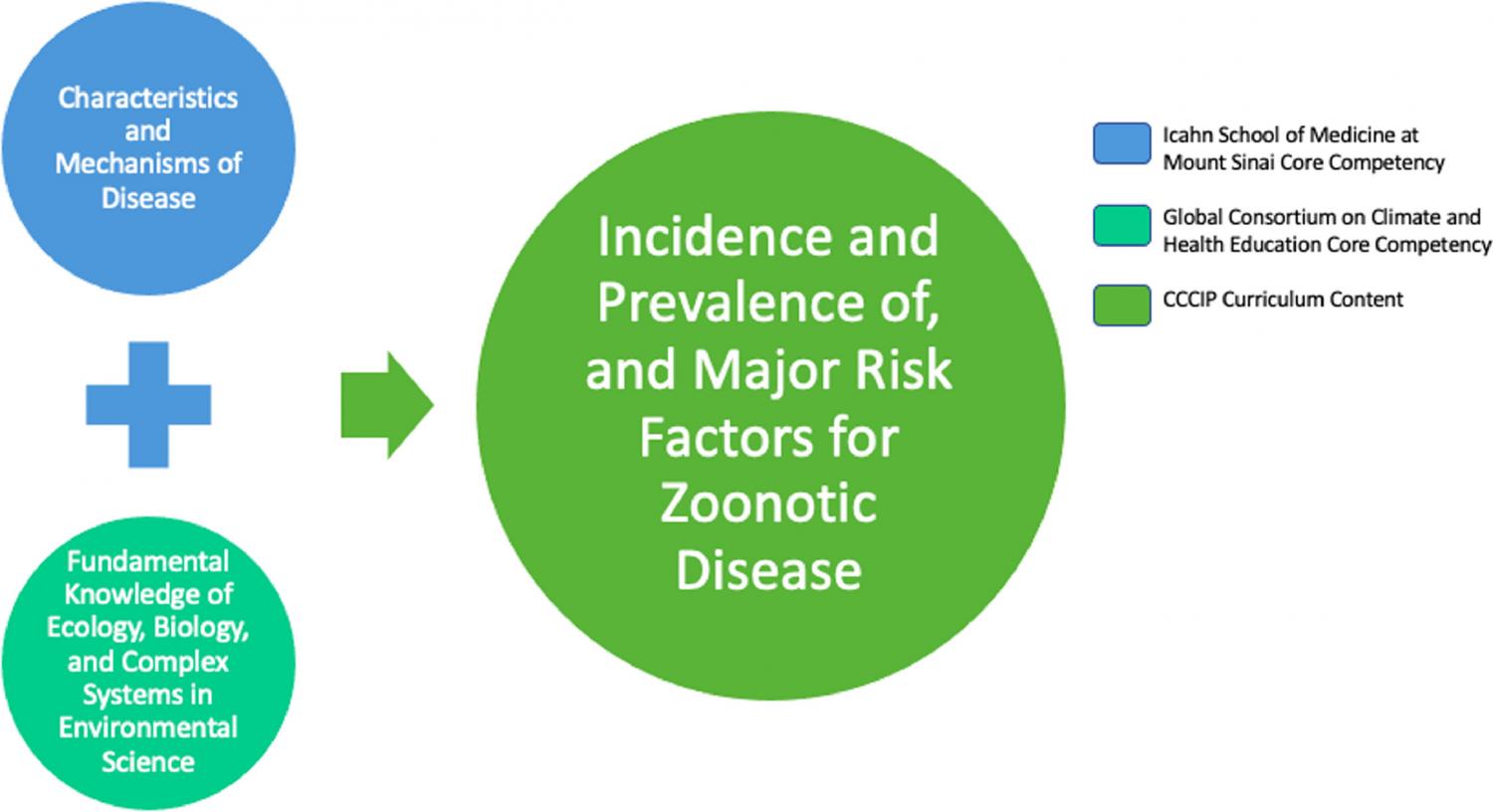
The Icahn School of Medicine at Mount Sinai has developed a unique Climate Change Curriculum Infusion Project (CCCIP) designed to incorporate information on climate health into an existing undergraduate preclinical curriculum.
Background: The Climate Change Curriculum Infusion Project (CCCIP) at the Icahn School of Medicine at Mount Sinai aims to incorporate climate change content into preclinical medical education using an infusion model. Climate change is considered a major threat and opportunity to health in the 21st century, and medical schools are seeking effective ways to teach relevant climate change competencies in an already crowded medical curriculum.
Objective: The objective of the Climate Change Curriculum Infusion Project (CCCIP) at the Icahn School of Medicine at Mount Sinai (ISMMS) is to incorporate climate change content into preclinical medical education using an infusion model. The aim of this study is to describe the CCCIP and summarise the results of two phases of evaluation that assessed student perceptions and visibility of the CCCIP curriculum three years after its inception.
Methods: CCCIP content was mapped to medical and climate and health competencies. Content was designed in conjunction with institutional staff and faculty. Data was collected in two phases (Summer 2018, Autumn 2020) utilising anonymous, online surveys distributed to medical students who had participated in at least one year of the CCCIP curriculum.
Results: The CCCIP integrates climate change and health content (30+ slides across 6 courses) with minimal disruption (<1-hour total content) to the existing preclinical curriculum. The majority of students agreed or strongly agreed that the CCCIP infusion content was appropriate for the class (88%), was effectively organised (82%), gave them a deeper insight into the topic (77%), and helped them to better understand the links between climate change and health (88%). However, a majority of students remembered climate-related content poorly throughout their first (78%) and second year (83%), and 62% felt that climate-related curriculum content at ISMMS did not meet their expectations.
Conclusion: The CCCIP demonstrates a feasible preliminary approach to integrating climate content into medical preclinical education. Students largely understand the value of climate change material and are open to its inclusion in the preclinical curriculum. However, curricular enhancements are needed to meet project goals in terms of curricular visibility and effectiveness. The evaluation is limited by a small response rate and possible bias in survey respondents. The CCCIP plans to use successes at other institutions to guide adjustments for the next iteration of the curriculum and assess the utility of these strategies in future studies.
